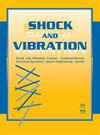Monitoring Soil-Pile Stripping Damage at Different Temperatures via Piezoelectric Ceramic Sensors
IF 1.2
4区 工程技术
Q3 ACOUSTICS
引用次数: 0
Abstract
Large temperature differences exist between the winter and summer seasons in different regions of China. Such temperature differences, caused by seasonal changes, may affect the life cycles of piles. Under natural conditions, such as long-term operation under the ambient environment and loads, piles and the surrounding soil undergo peel damage. To study such peel damage between the pile and soil at different temperatures, we installed concrete test piles in soil and subjected them to different temperatures. A crack with a width of 2 cm, depth of 10 cm, and damage range of 90° was applied at the side of the piles. Furthermore, a horizontal impact load was applied near the top of the pile and a piezoelectric ceramic sensor was used to obtain the stress wave response signals. The experimental results reveal that with a decrease in the soil temperature, the amplitude and fluctuation range of the signals received by the piezoelectric sensor decreased. According to the experimental results, in the group with the greatest influence of temperature, keeping other conditions unchanged and setting different crack depths, the horizontal impact load can also be introduced to observe the frequency change. It can be observed that the larger the crack depth, the smaller the frequency. Finally, ABAQUS was used for simulations, whose results were found to be consistent with those of the experiments. This paper describes a method for determining the safety of soil and piles with peel damage at different temperatures, and it also provides a validation of the necessity of holding the rest constant.基于压电陶瓷传感器的不同温度下土桩剥脱损伤监测
中国不同地区冬季和夏季的温差较大。这种由季节变化引起的温差可能会影响桩的寿命周期。在自然条件下,如在周围环境和荷载下长期运行,桩及其周围土体会发生剥落破坏。为了研究不同温度下桩与土之间的剥落损伤,我们在土中安装了混凝土试桩,并对其进行了不同的温度处理。桩侧缝宽2cm,深10cm,破坏范围90°。在桩顶附近施加水平冲击荷载,利用压电陶瓷传感器获取应力波响应信号。实验结果表明,随着土壤温度的降低,压电传感器接收到的信号幅度和波动范围减小。根据实验结果,在温度影响最大的组中,保持其他条件不变,设置不同的裂纹深度,还可以引入水平冲击载荷,观察频率变化。可以观察到,裂纹深度越大,频率越小。最后利用ABAQUS软件进行了仿真,仿真结果与实验结果吻合较好。本文介绍了不同温度条件下剥落损伤土桩安全性的确定方法,并验证了保持余量不变的必要性。
本文章由计算机程序翻译,如有差异,请以英文原文为准。
求助全文
约1分钟内获得全文
求助全文
来源期刊

Shock and Vibration
物理-工程:机械
CiteScore
3.40
自引率
6.20%
发文量
384
审稿时长
3 months
期刊介绍:
Shock and Vibration publishes papers on all aspects of shock and vibration, especially in relation to civil, mechanical and aerospace engineering applications, as well as transport, materials and geoscience. Papers may be theoretical or experimental, and either fundamental or highly applied.
 求助内容:
求助内容: 应助结果提醒方式:
应助结果提醒方式:


